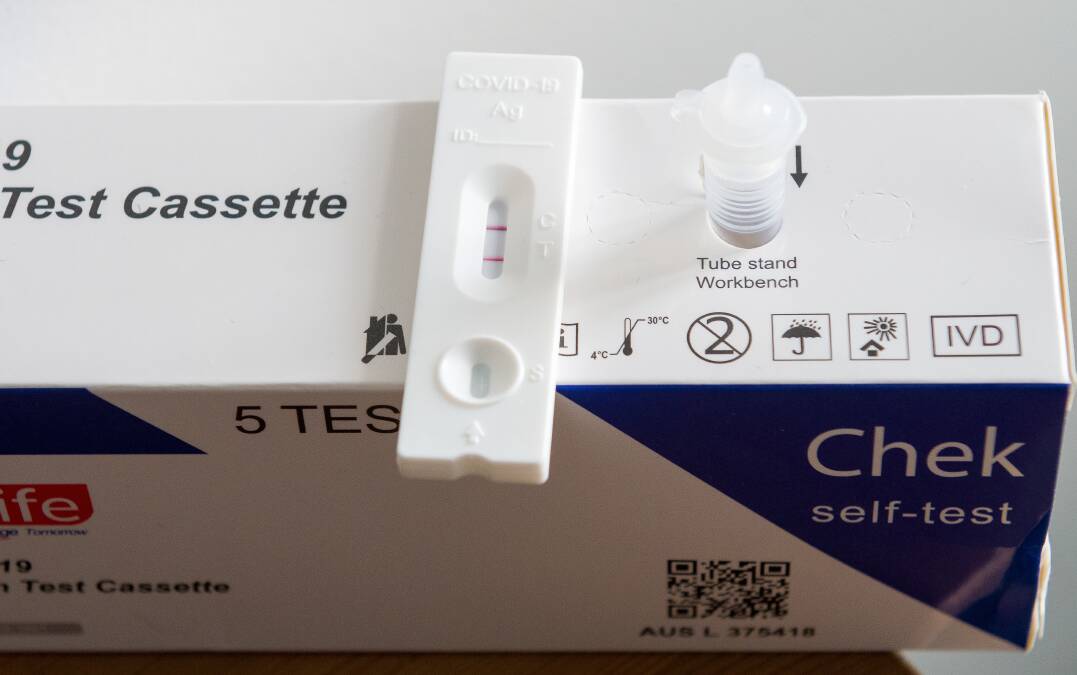Increased travel in the lead-up to Christmas and waning vaccine immunity could result in a prolonged COVID wave over the next month as case numbers across Australia increased by 30 per cent.
Hospital admissions in the ACT related to COVID-19 have also increased for the first time since July.
Authorities have resisted implementing any new restrictions or public health measures in the wake of the rising cases.
The ACT reported an increase in cases of 20 per cent. There were 1449 new cases reported in the seven days to 4pm on Thursday. This was up from 1194 in the previous week.
There were no deaths from COVID reported during the week.
Hospitalisation numbers for the same period were not reported as ACT Health said there were technical issues. This came in the same week the government launched its new digital health record.
The hospitalisation numbers for the ACT showing the increase were based from the latest epidemiology overview from ACT Health, which is from Monday, November 7 to Sunday, November 13. This is also released on Friday.
"Hospital admissions increased during this period as well, which is the first time we have seen an increase in weekly hospitalisation numbers since the winter wave in July," ACT Health's Dr Therese Marfori said.
"However, the number of COVID-19 hospitalisations is still much lower than the numbers that we saw at that time."
The report said there were 52 patients in Canberra hospitals affected by COVID-19. None of those patients had been admitted to the intensive care unit.
Nationally, Australia reported nearly 80,000 new COVID cases over the past week. This was up from 60,849 cases reported the week before.
Cases in the nation's three most populous states have more than doubled in the space of two weeks, although the number of serious infections remains low.
Infections are tipped to continue to increase over the coming weeks as a new Omicron sub-variant takes hold.
It's been a year since the Omicron variant first emerged where it spread rapidly in the lead up to Christmas. Governments delayed reimposing restrictions at a time of heightened travel.
ANU bioinformatics expert Benjamin Schwessinger said similar dynamics and waning vaccine immunity - booster uptake remains sluggish - could mean a prolonged surge over the next month, though it was impossible to "read tea leaves".
Mr Schwessinger said the latest wave was distinct from previous surges, which were driven by a single variant launching a takeover.
"Previously, we had these really nicely discrete waves of Delta, the first Omicron wave, [then] another Omicron wave," he said.
"This is the first time we've had these multiple variants at the same time, and none of them [have] really overtaken the other ones. It's kind of like a soup right now."
Mr Schwessinger estimated there were between five and 10 variants were likely to be circulating, though genomic sequencing has been pared back.
The latest epidemiology overview from ACT Health said since October 1 the BA.5 variant had been the most frequently sequenced Omicron variant at 48 per cent. This was following by BA.5 subvariants (24 per cent) and BA.2 subvariants (16 per cent).
"The increasing variety of new variants and subvariants is consistent with observations nationally and worldwide," the report said.
"The significance of these subvariants remains uncertain. ACT Health continues to monitor the situation."
The report also said in the latest reporting period 11 per cent of reported cases came from people who had reported having the infection more than once. This number has fluctuated by 10 to 20 per cent over the past month.
NSW and Queensland have both strengthened their messaging in recent weeks, encouraging residents to wear masks on public transport and areas of high risk, including hospitals and aged care facilities.
ACT Health has not updated any of its recommendations, instead it has continued to encourage people to take precautions.
"It's important that you make sure you're up to date with your COVID-19 vaccines and to continue COVID smart behaviours - like wearing a mask if you can, keeping your distance from others in indoor spaces where possible, washing your hands regularly and staying at home when you're unwell," Dr Marfori said.
However, Australian Medical Association's ACT president Dr Walter Abhayaratna has argued the relatively few people wearing masks in public indicated the recommendations weren't clear enough.
"I don't see as many people wearing masks now compared to previous waves, so for me, I don't think the response has been quite adequate," he told ABC radio.








